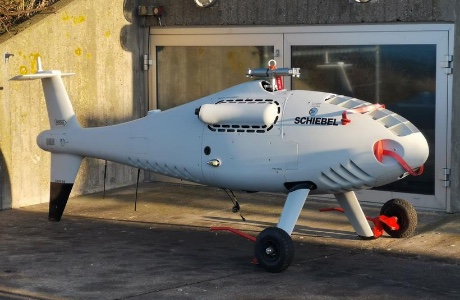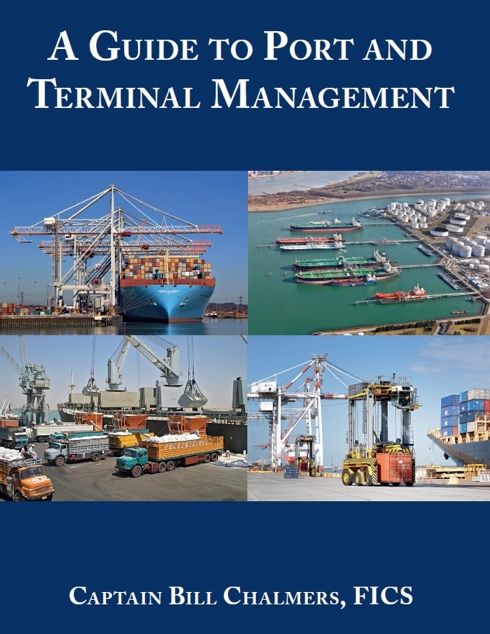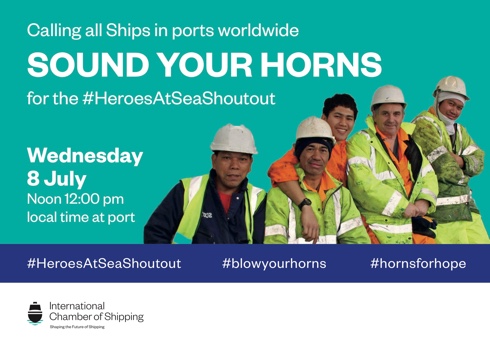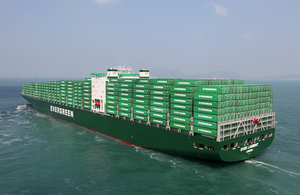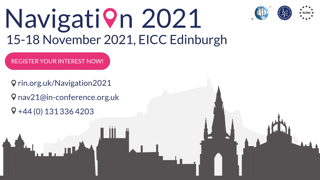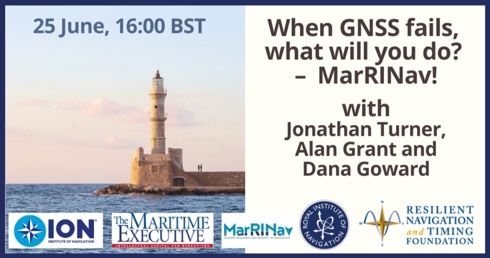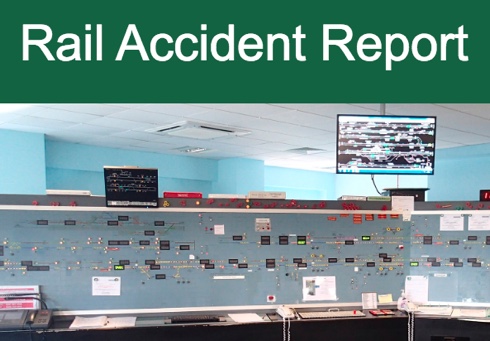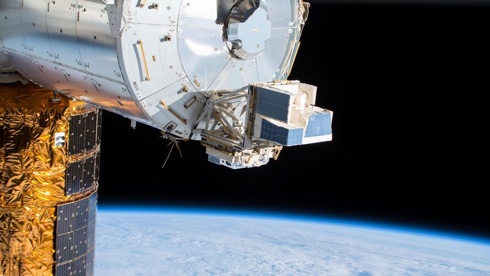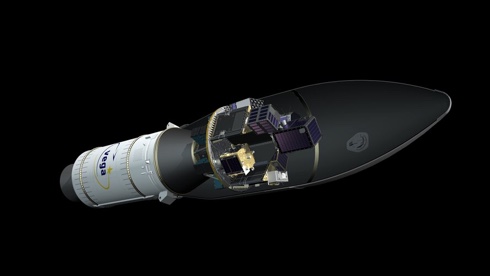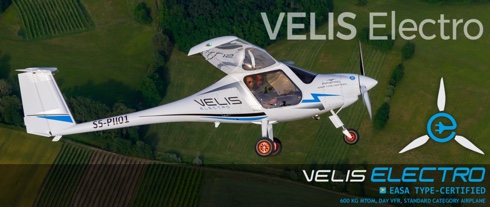Sulphur-sniffing drone checking emissions
According to the Danish Maritime Authority (DMA) this drone is provided by the European Maritime Safety Agency, and will operate in a specific area north of the Great Belt. This is the second time EMSA has tested a sulphur-sniffing drone in Denmark. Last year, a different model patrolled in the area for three months. The new drone has previously been used for various surveillance tasks.
By flying into the ship’s exhaust gas plume, the drone can use its sniffer technology to register the sulphur content in the ship’s fuel. These data are immediately available to the Danish Environmental Protection Agency, who can then follow up if a ship is emitting too much sulphur.
ScanReach innovation boost for onboard wireless connectivity
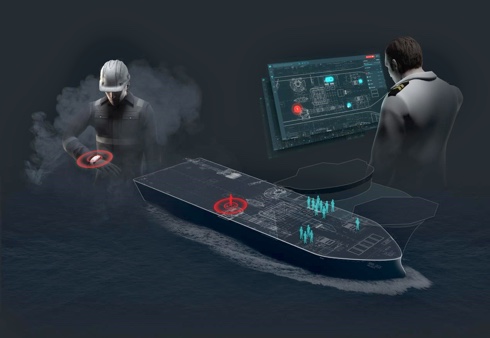
Innovation Norway reported on 22 July that it had awarded financing to ScanReach for a series of development projects to make operations safer, greener and more efficient at sea by bringing wireless connectivity to the maritime and offshore industries. Valued at NOK 18,5 million, it is one of the largest support packages of its kind from Innovation Norway this year.
To quote John Roger Nesje, ScanReach CEO: ‘ScanReach has spent the last five years developing a unique technology for onboard wireless digital communication through steel. Applying this technology will be a key driver for digitalization and optimization of the global maritime industry, while creating enormous opportunities for value creation in the Norwegian maritime industry.’
GIDAS: Real-time interference detection making satnav safer
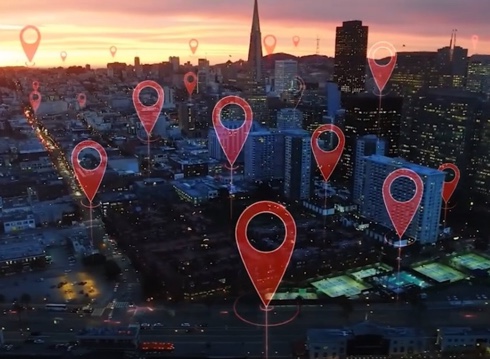
“It’s simply a matter of output power,” say Andreas Lesch of Austria-based OHB Digital Solutions. “A navigation signal on the ground is equivalent to the light from a 60 watt lamp aboard a satellite, some 23,222 km away in space in the case of Galileo. So these faint signals can be jammed by more powerful local radio signals, either accidentally or deliberately, or even misleading fake navigation signals, known as ‘spoofing’.”
“Our new GNSS Interference Detection and Analysis System, GIDAS, is designed to safeguard critical infrastructure against jamming or spoofing, by performing continuous monitoring of key signal bands. By doing so, GIDAS can raise the alarm in real time, identify the type of interference then pinpoint the location of these dangerous portable devices causing the interference so the authorities can take immediate remedial action.”
ION Joint Navigation Conference 2020 cancelled

The Institute of Navigation (ION) has announced that the annual ION Joint Navigation Conference JNC scheduled to take place September 8-11 in in Covington, Kentucky/Cincinnati, Ohio, has been cancelled. This decision was made in light of COVID-19 and the current DOD/government travel restrictions that are limiting travel. The restricted nature of the JNC conference does not make a virtual experience possible.
A Guide to Port and Terminal Management
As we are all well aware ports are essential in facilitating the movement of goods from one area of the world to another. Over time the size and complexity of ports have increased, but basic needs remain the same.
A Guide to Port and Terminal Management by Capt. Bill Chalmers, FICS, is aimed at students and port employees who intend to broaden understanding of their industry.
The focus of this book is on the Institute of Chartered Shipbrokers’ syllabus and examinations for Port and Terminal Management. This book provides an additional source of reading for candidates who are undertaking not only these examinations but studying other recognized courses.
EASA and EUROCONTROL joint unit cements cooperation
Director General EUROCONTROL Eamonn Brennan and the European Union Aviation Safety Agency (EASA) Executive Director Patrick Ky together officially opened the joint EASA-EUROCONTROL Technical and Coordination Office (TeCO) at EUROCONTROL’s Brussels HQ on 10 July. The Office is designed to improve the efficiency of the two organisations’ joint activities.
Safety and efficient running of air traffic in Europe is based on a complex system, which comprises harmonised air traffic management and air navigation services managed by a number of different organisations. EASA acts as the European regulator of the system while EUROCONTROL is the pan-European civil-military aviation organisation playing a central coordination role.
GNSS+ 2020 will go virtual

The ION has announced that the annual ION GNSS+ 2020 conference will now be held entirely virtual. This decision was made after careful consideration and in light of COVID-19 and the domestic and international travel restrictions that make it impossible for many speakers and participants to participate in person.
‘The virtual platform is the best way to deliver a meaningful technical program experience to all participants,’ said Lisa Beaty, Executive Director.
ION GNSS+ 2020 VIRTUAL will be held over the original dates, September 21-25, in Central Daylight Time and will live stream the plenary and all panel keynote sessions, including the Civil GPS Service Committee meeting, through the virtual web platform. These sessions will also be recorded and uploaded for viewing at a later time. Interactive question and answer will take place virtually.
ION announces five-year Journal impact factor growth

The Institute of Navigation (ION) is pleased to announce the continued growth of NAVIGATION, The Journal of The Institute of Navigation, reflected in the latest Journal Impact Factor (JIF) report. NAVIGATION’s Journal Impact Factor has now increased to 1.7, representing a 303% five-year increase from 0.562.
The JIF of an academic journal is a measurement tool used to calculate the yearly average number of citations to recent articles published in a journal and is an indication of the relative importance of the journal within its field. It is generally recognized that journals with higher impact factors are deemed more important than those with lower ones due to its citation rate.
AutoNaut USV maps North Sea soundscape
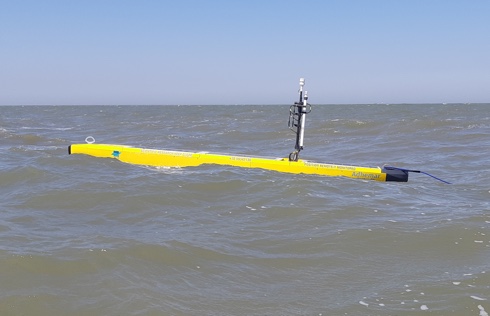
AutoNaut has played a vital role in enabling The Flanders Marine Institute (VLIZ) to seize upon the quiet of the COVID-19 quarantine to map the underwater soundscape of the Belgian section of the North Sea.
Using its near silent AutoNaut USV research vessel, Adhemar (pictured), VLIZ has been able to record current noise levels, which will be compared with the marine soundscape once normal sea traffic and marine activities resume. This will help, it is reported, to determine the impact of manmade noise on natural sea life and the marine environment, building a picture of the marine soundscape in conditions that may never again be possible.
New NI President – Focus on three challenges
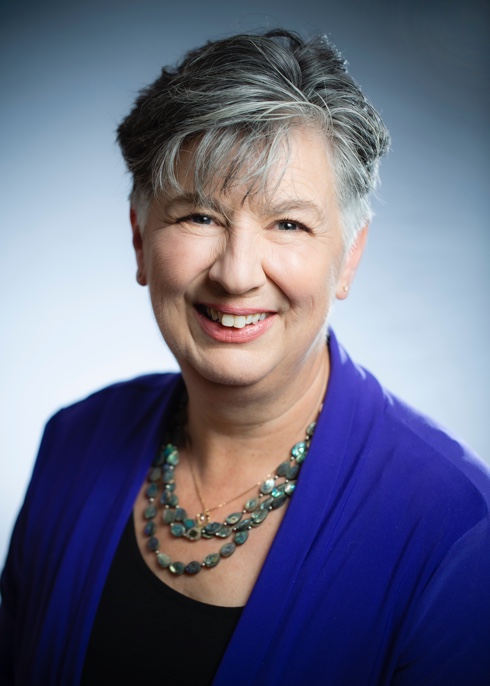
The newly elected President of The Nautical Institute, Jillian Carson-Jackson has vowed to help the Institute and the wider maritime community meet three important challenges – those of diversity and inclusion, branch engagement and managing the impact of technology.
Speaking at the Nautical Institute Annual General Meeting she announced a pledge from the Institute on diversity and inclusion: ‘There has been a concerted effort over the past years to raise visibility of not just women, but the overall role of diversity and inclusion in maritime. The pledge of the Institute, as a global body for maritime professionals, is to show its commitment to encourage, support and celebrate a diverse and inclusive maritime industry.’
ICS REQUEST THAT ALL SHIPS IN PORT SOUND TO HIGHLIGHT THE CREW CHANGE ISSUE
Action required: To ask member companies, shipowners, managers, port operators and any relevant national stakeholder to encourage ships captains to sound their horns when in port at 12.00 local on Wednesday, 8 July as a way of reminding governments not to forget the crew change issue ahead of a ministerial summit meeting on the subject.
UK government and UN commit to protect seafarers
UK will hold first summit to address the impact of coronavirus on shipping crew changes.
– Government will call on the international community to come together to ensure swift repatriation;
– Estimated 200,000 seafarers due to change over, with concerns around the impact on wellbeing.
Marking the International Day of the Seafarer, the UK government on 25 June announced it will host the first international summit on the impact of COVID-19 on crew changes next month, bringing together UN, political and business leaders from across the globe.
INC, ENC & IWC joint event
In 2021, the International Navigation Conference, the European Navigation Conference and the IAIN World Congress will meet at the EICC in Edinburgh, Scotland, November 15-18.
Complimentary webinar
Join us June 25, 2020 at 11:00am EDT for a complimentary webinar ‘When GNSS fails, what will you do? MarRINav!’
Co-sponsored by the Royal Institute of Navigation, the Resilient Navigation and Timing Foundation, and the Maritime Resilience and Integrity of Navigation (MarRINav) project, ‘When GNSS fails, what will you do?’ will present analysis and insights from Phase 1 of the MarRINav project
The (UK) Rail Accident Investigation Branch
Since it became operational in 2005, RAIB has investigated numerous incidents in which signaller decision-making has been pivotal, and where the safety of the railway system was heavily dependent on those decisions (that is, scenarios in which there were no, or limited, engineered safeguards).
Under its remit, RAIB also collected industry data on several similar incidents over a five-year period which again highlighted the vulnerable nature of such decision-making. In the light of these incidents, the RAIB undertook a class investigation into what affects those decisions, recognising that they may be influenced by a variety of systemic factors.
ITM & PTTI 2021
Submit your abstract today for the Institute of Navigation’s (ION) COMBINED International Technical Meeting (ITM) and the Precise Time and Time Interval (PTTI) Systems and Applications Meeting. The co-located conferences will take place January 25-28, 2021 at the Hyatt Regency Mission Bay in San Diego, California. Abstracts are due October 7, 2020.
ITM & PTTI 2021 are co-located – ONE registration fee, TWO technical events and a commercial exhibit.
Martian rover motors ahead
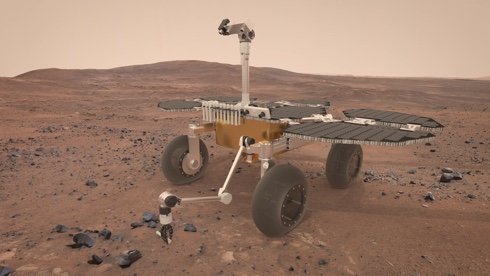
European engineers, together with Canada, are working on the technologies needed to find and retrieve samples from Mars, as part of ESA’s plans to send material from the Red Planet to Earth.
The Sample Fetch Rover will need to navigate autonomously, detect tubes of samples collected and packed by an earlier NASA rover, pick them up and return them to Earth.
Storm hunter turns two
The Atmosphere-Space Interactions Monitor or ASIM, mounted outside the European laboratory of the International Space Station, enters its second year of science operations.
Specifically, ASIM is on the hunt for elusive electrical discharges in the upper atmosphere, or lightning that extends upwards into space. These discharges have alluring names like red sprites, blue jets and elves and have been reported by pilots over the years.
PICASSO CubeSat to sift secrets from sunrise
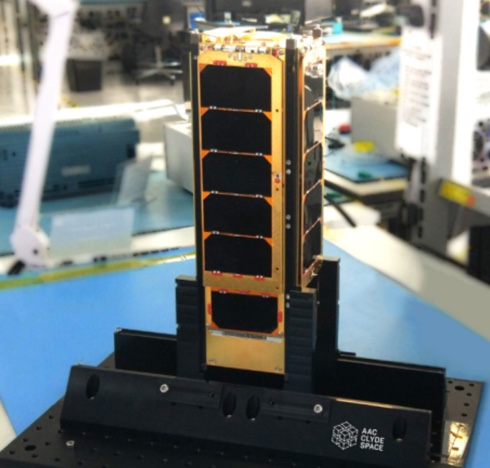
There is always a sunrise and sunset happening somewhere on our planet. Soon a new Belgium-led CubeSat – flying aboard Europe’s Vega launcher this Sunday – will be keeping watch. The miniature PICASSO mission will use the filtering of sunlight by Earth’s atmosphere to check the health of our protective ozone layer.
CubeSats are miniature satellites built up from standardised 10-cm boxes. The PICo-satellite for Atmospheric and Space Science Observations, or PICASSO, developed with ESA by the Belgian Institute for Space Aeronomy (BISA), is a ‘3-unit’ CubeSat with two scientific payloads. It hosts a cut-down spectrometer for monitoring the atmosphere, as well as sampling probes (called ‘SLP’) to measure space plasma around the nanosatellite.
FSSCat/Φ-sat-1 ready for launch
The first artificial intelligence to be carried onboard a European Earth observation mission will be launched this week from Europe’s spaceport in Kourou, French Guiana. The pioneering artificial intelligence technology named Φ-sat-1, pronounced PhiSat-1, will be the first experiment to improve the efficiency of sending vast quantities of data back to Earth.
ION GNSS+ 2020 virtual registration optiona announced
The Institute of Navigation (ION) is announcing that the ION GNSS+ 2020 will now have a virtual option for those unable to attend due to travel restrictions. With the goal of increasing global accessibility to everyone who wants to participate, the ION GNSS+ 2020 virtual option will mirror the technical program being presented live, September 21-25 in St. Louis, Missouri, giving attendees access to the latest GNSS developments and premium content through an innovative and timely online experience. In addition, virtual meeting attendance will be free for all first-time ION GNSS+ attendees.
When GNSS fails, what will you do? MarRINav!
It’s well known that GPS and other satellite navigation systems are vulnerable to disruption. The MarRINav project provides a phased approach towards achieving resilient positioning, navigation and timing in the maritime domains.
The webinar scheduled for 25 June will present:
– how maritime positioning requirements were systematically developed
– assessment of current and future positioning systems to deliver the required performance and integrity
– rigorous gap analysis, showing where performance falls short and options to solve these issues
-road-map of steps needed, and by whom, towards maritime resilient positioning.
Rideshare service for light satellites to launch on Vega
It was reported by the European Space Agency (ESA) on 12 June that Europe’s next Vega launch will premiere a new dispenser called the Small Spacecraft Mission Service, or SSMS. The vehicle will transport more than 50 satellites at once into orbit on the first rideshare mission dedicated to light satellites. Liftoff from Europe’s Spaceport in French Guiana is set for week commencing 14 June.
First type certification for fully electric plane worldwide
From Cologne on 10 June the European Union Aviation Safety Agency (EASA) announced the certification of an electric aeroplane, the Pipistrel Velis Electro, the first type certification worldwide of a fully electric aircraft and an important milestone in the quest for environmentally sustainable aviation.
The Velis Electro is a two-seater aircraft intended primarily for pilot training. Slovenia-based Pipistrel is a leading small aircraft designer and manufacturer, specialised in energy-efficient and affordable high-performance aircraft.
IMO and UNCTAD urge keeping ships moving, ports open and cross-border trade flowing
The world’s reliance on maritime transport makes it more important than ever to keep ships moving, ports open and cross-border trade flowing, and to support ship crew changeovers, the United Nations maritime and trade entities said in a joint statement issued on 8 June 2020 and available here.
The IMO and the United Nations Conference on Trade and Development (UNCTAD), which tracks world trade, reiterated calls for Governments to promote crew well-being by allowing crew changes and ensuring seafarers and other maritime personnel have access to documentation and travel options so that they can return home safely.
For further information and guidance on coronavirus readers are invited to see here.

